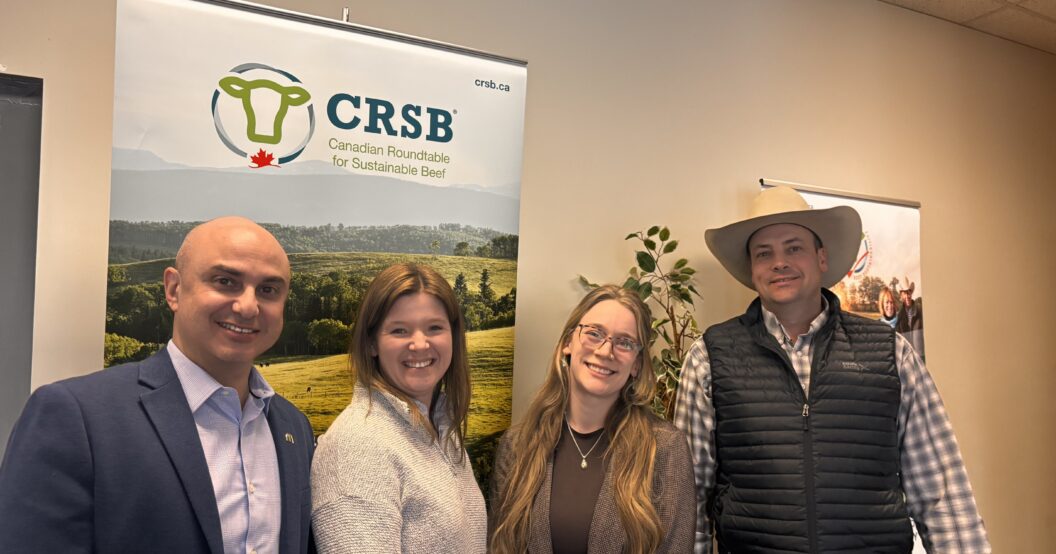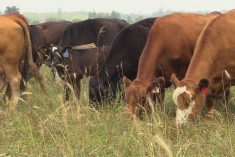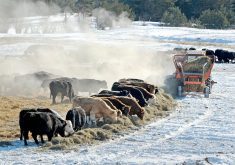Revised, Sept. 23 — The U.S. government hasn’t challenged Canada’s “economic evidence” of the harm caused by mandatory country-of-origin labelling (COOL), but blames “market participants” rather than COOL itself, Canada’s cattle agency reports.
Attending the first round of oral hearings in a challenge of U.S. COOL by Canada and Mexico at a World Trade Organization (WTO) dispute settlement panel, the Canadian Cattlemen’s Association said Canada’s team was solid in its preparations and professional in refuting the U.S. team’s “creative suggestions.”
“We correctly anticipated the arguments the U.S. would use to defend COOL and while there were no surprises, it is clear that the U.S. intends to defend this trade barrier vigorously,” CCA president Travis Toews said in a release Friday.
Read Also

McDonald’s, Cargill fund youth councillor position with Canadian Roundtable for Sustainable Beef
The Canadian Roundtable for Sustainable Beef’s youth councillor will be supported in her role with funding from McDonalds’s Canada and Cargill.
According to the CCA, Washington’s defense of COOL at the dispute settlement body’s hearings in Geneva, Switzerland was to claim that COOL is designed to inform consumers, not restrict trade, and that it hasn’t directly caused any segregation or other negative impact on Canadian cattle.
Canada retorted that the market reaction to COOL was “not only predictable but in fact the intended outcome of COOL’s proponents,” the CCA said.
Launched in September 2008, mandatory COOL requires U.S. retailers, such as full-line grocery stores, supermarkets and club warehouse stores, to notify their customers through labelling the source of foods such as muscle-cut and ground meats from beef, veal, pork, lamb, goat or chicken; wild or farm-raised fish or shellfish; ginseng; fresh or frozen fruits or vegetables; peanuts, pecans, or macadamia nuts.
Canada and Mexico claim COOL violates international trade laws, restricts market access and constitutes a technical trade barrier.
The CCA and Canadian Pork Council say the law has forced unnecessary costs on U.S. meat processors, who now must either segregate Canadian animals and meat for labelling purposes, or curb their imports from Canada.
Canada’s WTO team presented its case that COOL is causing “considerable economic harm” for Canadian livestock exports, to which the U.S. team argued these impacts “were the result of choices by market participants, not a result of any U.S. government requirement,” the CCA reported.
The CCA noted this hearing was the first opportunity for the three-member WTO dispute panel to “personally engage” with Canada, Mexico and the U.S. on the matter.
The panelists were “well prepared from the written materials submitted over the summer and asked many probing questions,” the association said.
“Resource-intensive”
Canada’s trade team expects to spend the next five weeks preparing written answers to “numerous” questions posed by the panel, the CCA said, noting Canada also has an opportunity to provide written rebuttals by late October.
A second oral hearing will be held in December, with further written submissions through February, the CCA said.
The WTO panel’s report on COOL is then expected to be ready in July 2011, but whatever the panel rules, it will “most likely” be appealed, a process expected to take another year, the association said.
The CCA, in its release, emphasized that the WTO process is an “extremely resource-intensive process” for the association, and that its advice “has been essential to ensuring that the Canadian government legal team was well prepared with industry evidence and ‘corporate memory.'”
The association noted it will continue to see the COOL case through to its conclusions, “just as we have led similarly costly legal and advocacy efforts in the U.S. for most of the past 10-15 years” — and that such efforts are “only possible with the valuable provincial checkoff dollars provided by producers through their provincial cattle organizations as members of the CCA.”
Clarification, Sept. 23 –– A previous version of this article noted Alberta’s move to make the $1-per-head national checkoff refundable in that province, starting in April 2010. The national checkoff solely funds research and marketing activities and does not provide any funding to the CCA itself. The CCA is funded separately through provincial organizations and handles administration work for checkoff-funded research and marketing agencies on a contract basis.















